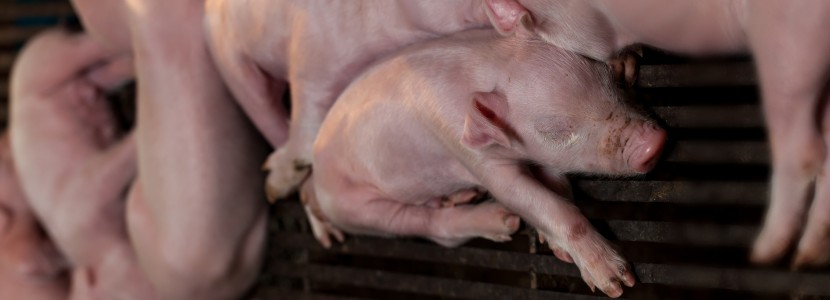Supplementation in newborn piglets is a key factor to focus on within the pig industry. In the last 10-15 years, there has been a tendency to select the most prolific sows, with litters greater than 12 live/calving piglets or even greater than 15 in some cases.(Guo et al., 2015) This however, results in greater heterogeneity regarding birth weight.
Larger litters have higher energy and nutritional needs as well as greater health challenges (Baxter et al., 2013; Rutherford et al., 2013).
- Fetal and neonatal deaths can be attributed to physiological immaturity and lack of energy storage in piglets, often resulting in weak animals.
- In large litters, there is an increase in low-weight piglets’ frequency of (<1 kg). These piglets find themselves at a disadvantage when competing for colostrum.
The epidemiology of pre-weaning mortality is complex, however, lack of energy is the main cause.(Lin et al., 2015) Resulting in hypothermia, and leading to mortality due to crushing, weakening, amongst other causes (Cara-mori et al., 2010).
The use of liquid diets enriched with milk and fat, has had good results, positively affecting the growth of small piglets during lactation or after weaning.
This review aims to characterize different feed sources that can contribute to adequate energy supplementation, reducing mortality and improving piglet performance during the lactation phase.
Importance of energy consumption in newborn piglets
Appropriate energy intake for newborn piglets is especially important for maintaining body temperature.
- Fat reserves of newborns are low (about 20g/kg) and do not contribute significantly to their energy supply, since the capacity to undergo gluconeogenesis in this period is still not fully developed (Boyd et al. , 1982).
At 32-34ºC, glycogen stores of piglets that did not have access to colostrum will be scarce within 16 hours (Theil et al. , 2011).
These reserves can be depleted in 10 to 16 hours at 18-26ºC, depending on the environmental and body conditions of the piglet at birth.
The consequences of the depletion of this energy source are hypoglycemia, hypothermia and death (Xu and Cranwell, 2003). The first three days of life are considered the most critical phase. This is due to the challenge of maintaining energy balance, when the energy source is quickly depleted.
Keep up to date with our newsletters
Receive the magazine for free in digital version REGISTRATION ACCESS
YOUR ACCOUNT LOGIN Lost your password?
